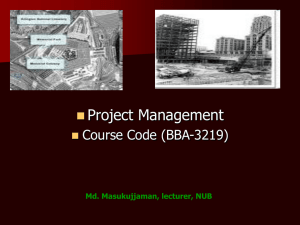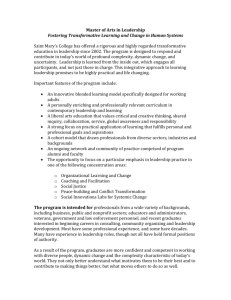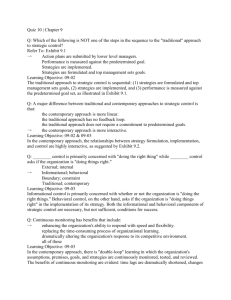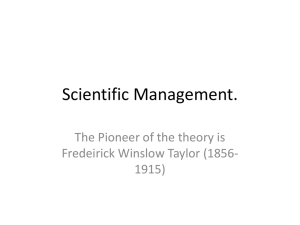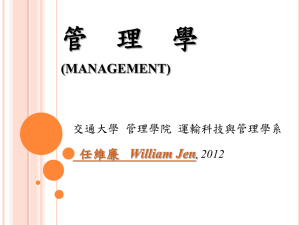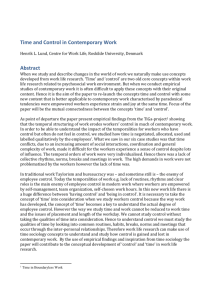The Business Administration programme is aimed to achieve the
advertisement
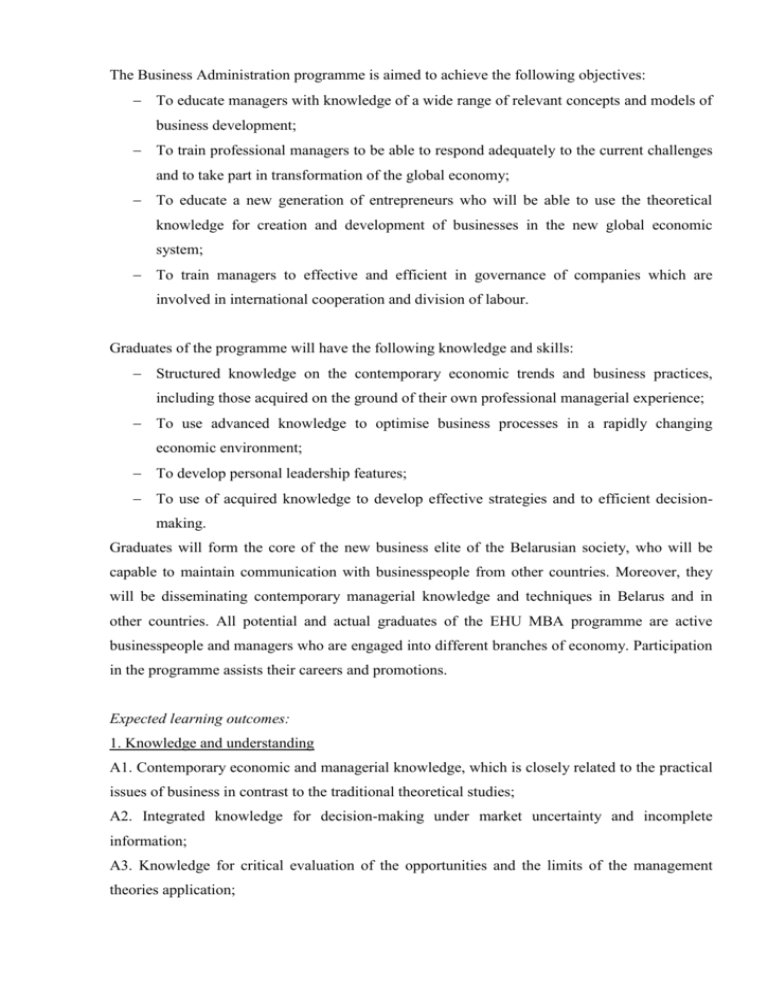
The Business Administration programme is aimed to achieve the following objectives: To educate managers with knowledge of a wide range of relevant concepts and models of business development; To train professional managers to be able to respond adequately to the current challenges and to take part in transformation of the global economy; To educate a new generation of entrepreneurs who will be able to use the theoretical knowledge for creation and development of businesses in the new global economic system; To train managers to effective and efficient in governance of companies which are involved in international cooperation and division of labour. Graduates of the programme will have the following knowledge and skills: Structured knowledge on the contemporary economic trends and business practices, including those acquired on the ground of their own professional managerial experience; To use advanced knowledge to optimise business processes in a rapidly changing economic environment; To develop personal leadership features; To use of acquired knowledge to develop effective strategies and to efficient decisionmaking. Graduates will form the core of the new business elite of the Belarusian society, who will be capable to maintain communication with businesspeople from other countries. Moreover, they will be disseminating contemporary managerial knowledge and techniques in Belarus and in other countries. All potential and actual graduates of the EHU MBA programme are active businesspeople and managers who are engaged into different branches of economy. Participation in the programme assists their careers and promotions. Expected learning outcomes: 1. Knowledge and understanding А1. Contemporary economic and managerial knowledge, which is closely related to the practical issues of business in contrast to the traditional theoretical studies; А2. Integrated knowledge for decision-making under market uncertainty and incomplete information; А3. Knowledge for critical evaluation of the opportunities and the limits of the management theories application; А4. Knowledge that will allow to critically evaluate the domestic and global economic processes, as well as the tools of the government economic policy; А5. Deep understanding of managerial theories and tools of strategic analysis for business management and critical assessment of the applicability of the chosen strategy in the frameworks of national and global markets; А6. Understanding of the essence and importance of knowledge management in a contemporary company; А7. Knowledge on nature and the life cycles of an organisation, organisational change management techniques, the role of corporate culture; А8. Knowledge on methods of creation new ideas, concepts and products, on evaluation of consumer expectations, and on marketing strategies; А9. Knowledge on specific features of the management process in a cross-cultural environment; А10. Knowledge on the key concepts of talent management and techniques of stimulating and developing the human capital in a firm. 2. Intelligence abilities В1. Creative way of thinking: to initiate and to organise the process of ideas generation; В2. Critical way of thinking: to critically evaluate information, to determine the logical and causal error for the correct discovering of the essence of the problems; В3. Systemic way of thinking: to be able to organise and to carry-out interdisciplinary business research; В4. Conceptual way thinking: to understand the nature of business issues through critical evaluation of their expression and interrelations with the key problems of the economy. 3. Practical skills С1. The ability to make strategic and operational business decisions under uncertainty and variability of the environment; С2. The ability to evaluate consequences of changes in economic policy from the perspective of their impact on business prospects; С3. The ability to identify and develop the key competencies of a firm, which provide long-run competitive advantages; С4. The ability to evaluate ideas, concepts and projects in terms of criteria of effective business performance; С5. The ability to apply a systematic approach to the changes implementation in a company; С6. Skills in talent management and ability to create a learning organisation; С7. The ability to realize Corporate Social Responsibility model of companies. 4. Skills in communication and transfer of knowledge and abilities D1. The ability to present ideas and findings clearly and logically both to the experts and nonexperts; D2. Skills of effective and efficient communication both orally and in writing, skills to organise negotiations, briefings, and discussions; D3. Skills of team-building, team management, and teamwork; D4. The ability to take responsibility in decision-making and implementation of the decisions. 5. The capacity for continuous self-education Е1. Formation of the permanent education and individual development life-style: personal leadership efficiency as a ground for the efficiency of an organisation; Е2. The ability to encourage employees, subordinates, and business partners to learning and development.

